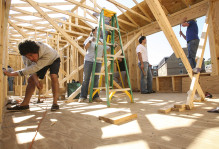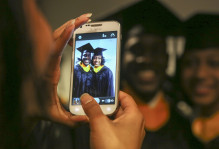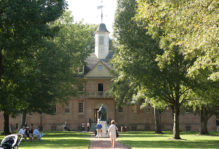Making Connections
Branch Out Alternative Break trips bring students to work on service projects in communities around the world and just a few miles away, with a strong focus on issue education. Before students depart for each trip, they spend time delving into the issue their service projects address. If they’re building houses, they learn about affordable housing and the local economy. If they’re educating communities about HIV/AIDS, they study RNA reverse transcriptase and societal taboos. Their study is very focused on the issue, both in a broad context and how it affects the community in which they’ll be serving.
One of my favorite things about how Branch Out fosters learning is that many students return from their trips saying things like, “Even though our trip was about educational inequality, we also talked a lot about living wage, and health care, and food insecurity, and….” The list goes on. They see how social issues are interconnected, and how an impact in one area can ripple out to others. They get that when a family has stable housing, children have a place to study and sleep well and can learn better.
When students attend an alternative break trip – whether it’s in Ho, Ghana, or Gaston, North Carolina – they participate in the complexities of society by being engaged in service with the community. While they’re working on projects and in conversations with community members, they integrate their on-the-ground experience with their pre-trip research.
This year, all of the OCES’ service trips – Regional, National and International – are under the Branch Out umbrella. All site and team leaders are trained in the components of a quality trip. In April, after most trips have happened, participants will gather for reorientation to discuss what they learned. Students who worked on similar issues in very different locales will compare what they experienced, and discover how a common issue manifests differently in diverse contexts. They will also learn how they can become engaged in that issue and others connected to it right here in Williamsburg, in their classes, and in their careers and lives to come.
This process makes the impact of one trip much bigger than the trip itself. It helps students become what the national Alternative Breaks movement calls Active Citizens – people for whom the issues they explore are not problems to fix, but ways into a life committed to justice.




No comments.
Comments are currently closed. Comments are closed on all posts older than one year, and for those in our archive.